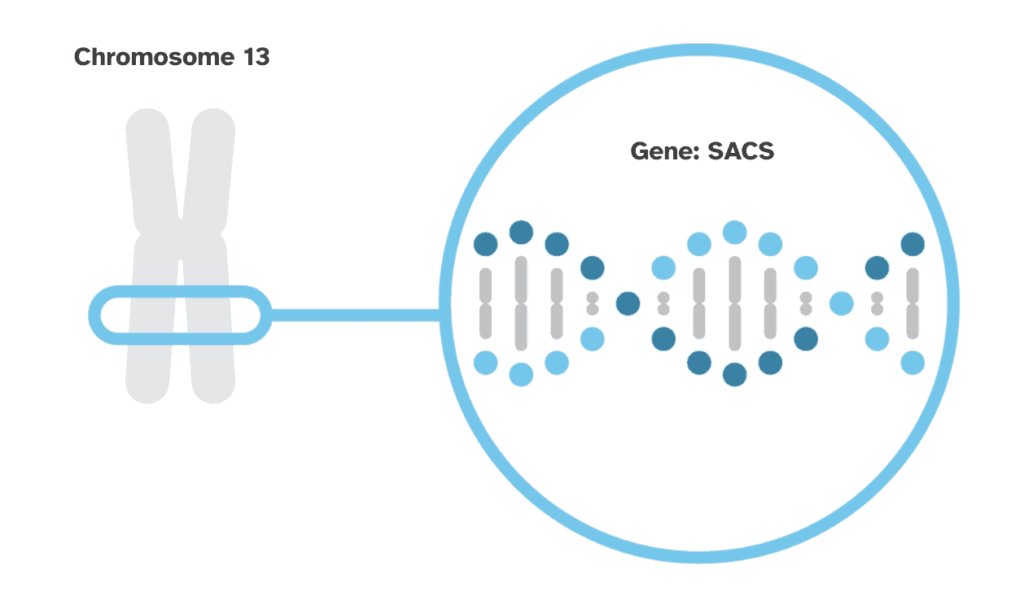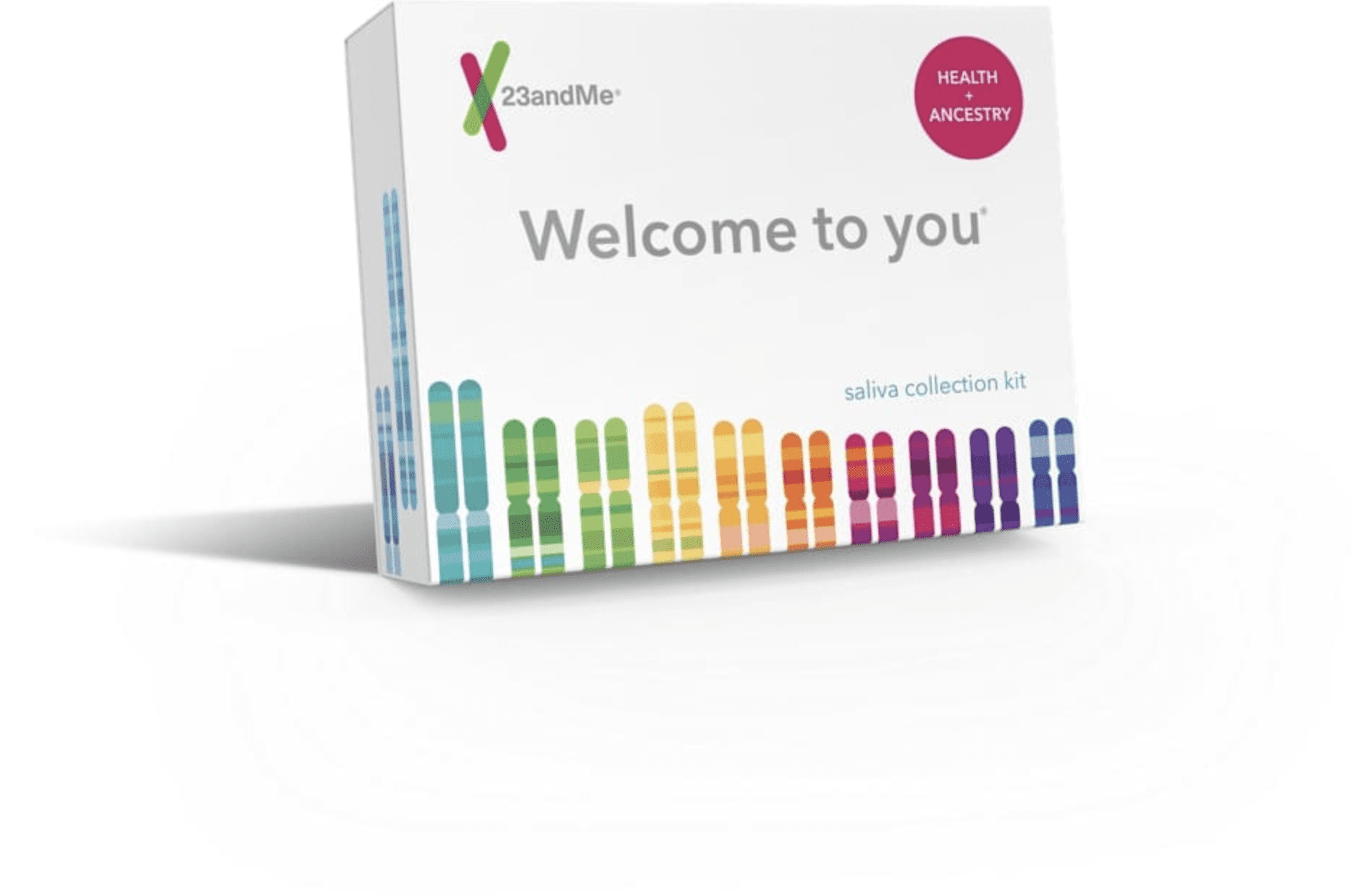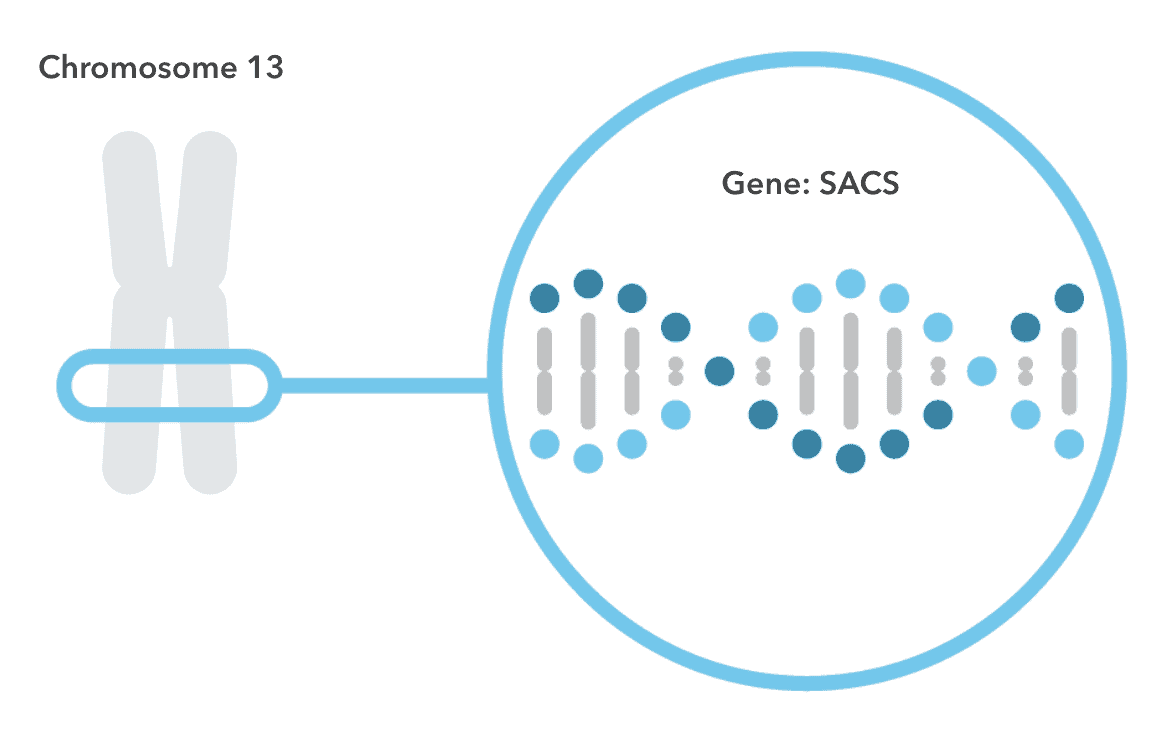What is ARSACS?
ARSACS (also known as autosomal recessive spastic ataxia of Charlevoix-Saguenay) is a rare genetic disorder characterized by loss of sensation and muscle control, as well as muscle stiffness that worsens over time. A person must have two variants in the SACS gene in order to have this condition. People with just one variant in the SACS gene are called carriers. They’re not expected to have ARSACS themselves, but they could pass their variant on to their future children.
The genetics behind ARSACS
ARSACS is caused by variants (differences) in the SACS gene. The SACS gene contains instructions for making a protein called sacsin that is mainly present in the brain, skin cells, and skeletal muscles. Research suggests that sacsin plays a role in organizing certain proteins that help provide support and strength to cells. Certain variants in SACS lead to a shortened protein that cannot function properly.

What are the symptoms of ARSACS?
Symptoms of ARSACS include muscle stiffness, loss of sensation in hands and feet, and impaired movement and balance. Symptoms typically develop during early childhood and worsen over time.
Did you know?
ARSACS is most common in people of French Canadian descent, particularly from the Charlevoix and Saguenay-Lac-Saint-Jean regions of Quebec.
Explore More
The 23andMe ARSACS Carrier Status report* can tell you whether you may be a carrier for ARSACS. Being a carrier means you have a genetic variant that you could pass down to your future children. 23andMe tests for one variant in the SACS gene linked to ARSACS, and the report is most relevant for people of French Canadian descent. 23andMe does not test for all possible genetic variants linked to ARSACS, and individuals who have zero variants detected still have a chance of being a carrier for ARSACS.
The ARSACS Carrier Status report is included in the 23andMe Health + Ancestry Service.

Health + Ancestry Service
*The 23andMe PGS test uses qualitative genotyping to detect select clinically relevant variants in the genomic DNA of adults for the purpose of reporting carrier status and reporting and interpreting genetic health risks. The relevance of each report may vary based on ethnicity. Our carrier status reports can be used to determine carrier status, but cannot determine if you have two copies of any genetic variant. These carrier reports are not intended to tell you anything about your risk for developing a disease in the future or anything about the health of your fetus, or your newborn child’s risk of developing a particular disease later in life. For certain conditions, we provide a single report that includes information on both carrier status and genetic health risk. The ARSACS Carrier Status report is indicated for the detection of one (1) variant in the SACS gene and is most relevant for people of French Canadian descent. For important information and limitations regarding each carrier status report, visit 23andme.com/test-info.
References
